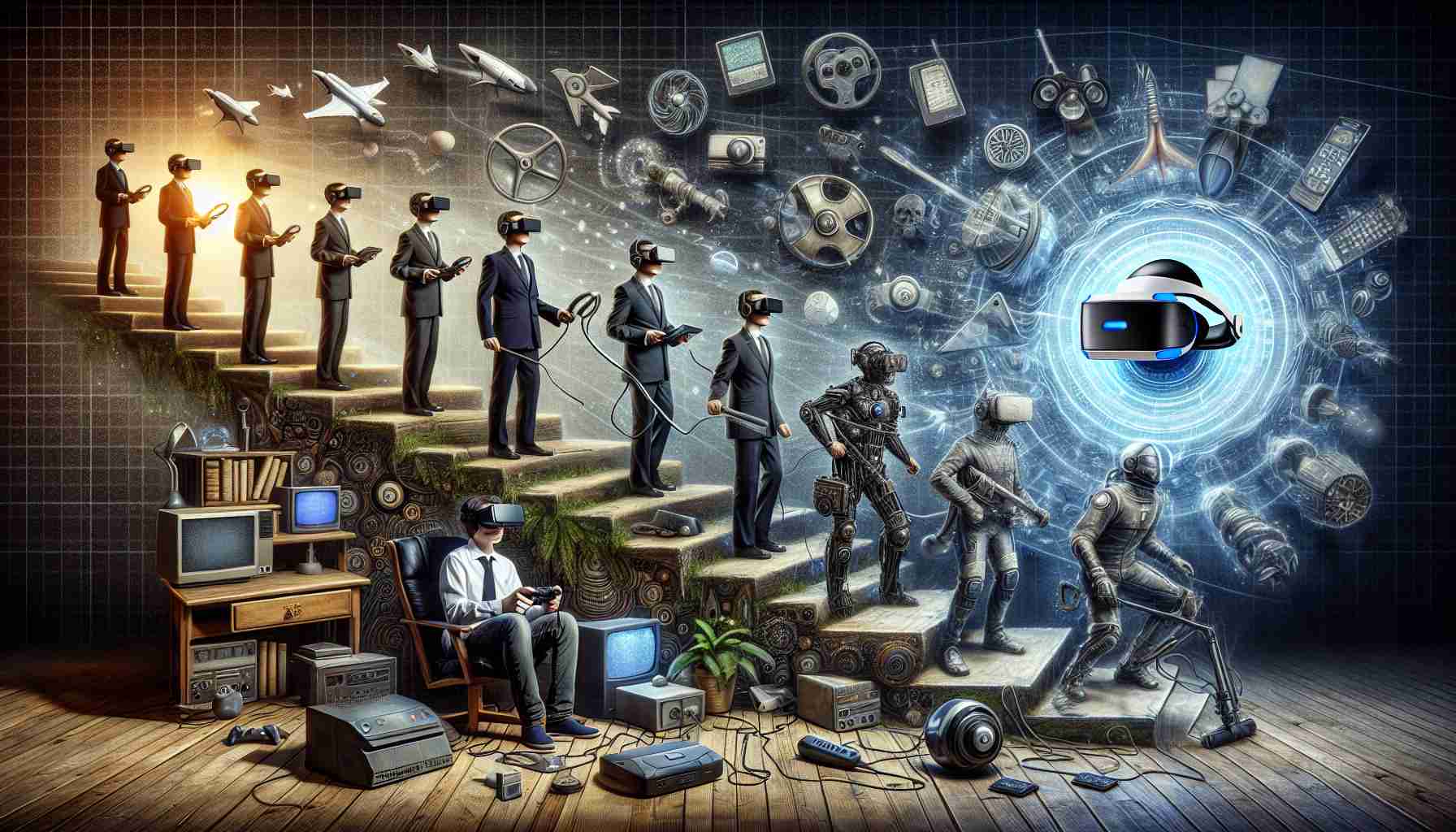Virtual reality (VR) has become one of the most innovative and exciting technologies in recent years, revolutionizing various industries including gaming. With its ability to transport users to virtual worlds and provide immersive experiences, VR has truly changed the way games are played and experienced.
In the past, gaming was largely limited to screens and controllers. However, with the advent of virtual reality, players can now step into their favorite games and interact with the virtual environment in a whole new way. Whether it’s exploring a fantasy world, battling enemies, or solving puzzles, VR brings a level of realism and immersion that was once unimaginable.
One of the main advantages of VR gaming is the sense of presence it provides. By donning a VR headset and using motion controllers, players can physically engage with the virtual world, making the experience more engaging and interactive. This heightened sense of presence enhances the overall gaming experience, making players feel like they are truly part of the game.
Moreover, VR has also opened up new possibilities for multiplayer gaming. Players can connect with others in virtual worlds, interacting and collaborating in real-time. This social aspect of VR gaming adds a new dimension to the gaming experience, allowing players to connect and share their adventures with friends from all around the world.
Additionally, VR has paved the way for new genres and gameplay mechanics. Developers have been experimenting with innovative ideas that take full advantage of the technology. From puzzle-solving and exploration to action-packed adventures, VR offers a wide range of gaming experiences that cater to different preferences.
As the technology continues to evolve and become more accessible, we can expect to see even more advancements in VR gaming. With the introduction of wireless headsets, improved graphics, and faster processing power, the future of VR gaming looks incredibly promising.
In conclusion, virtual reality has transformed the gaming industry by providing immersive experiences, enhancing gameplay mechanics, and fostering social interaction. As more and more players embrace this technology, the boundaries of gaming will continue to be pushed, opening up new possibilities for the future of gaming.
Additional facts:
– Virtual reality technology has been around since the 1960s, but it has only recently become more accessible and affordable for consumers.
– The VR gaming market is expected to surpass $45 billion by 2027, indicating significant growth and potential in the industry.
– VR is not limited to gaming alone. It is also being used in other industries such as education, healthcare, and training simulations.
– VR headsets come in various forms, including tethered headsets that are connected to a computer, standalone headsets that do not require external devices, and mobile headsets that utilize smartphones.
– Virtual reality arcades have emerged as a popular trend, allowing people to experience VR technology without having to invest in expensive equipment.
Key questions and answers:
1. How does virtual reality work in gaming?
Virtual reality gaming involves wearing a headset that tracks the movement of your head and often includes motion controllers to simulate interactions within the virtual environment. The headset displays a 3D, immersive world that moves in sync with your head movements, creating a sense of presence and realism.
2. Are VR games only compatible with specific platforms?
VR games are developed for specific platforms, such as PC, PlayStation VR, or Oculus Quest. However, there are some cross-platform VR games that can be played on different systems.
Key challenges and controversies:
1. Cost: VR gaming can be expensive, as it requires an investment in a VR headset and compatible hardware, such as a powerful computer or gaming console.
2. Motion sickness: Some people may experience motion sickness or discomfort when using virtual reality, especially if the VR game involves rapid movements or intense visuals. Developers are continuously working on reducing motion sickness through optimization techniques.
3. Limited content: While the library of VR games is growing, it is still relatively smaller compared to traditional gaming platforms. This may limit the variety of experiences available for VR gamers.
4. Accessibility: VR gaming may not be accessible to everyone, including individuals with certain disabilities or medical conditions. Developers are striving to make VR more inclusive by implementing features such as adjustable accessibility settings.
Advantages of VR gaming:
– Immersive experiences: VR provides a level of immersion and realism that traditional gaming cannot match. Players feel as if they are physically present in the game world.
– Interactivity: With motion controllers, players can interact with objects and environments, creating a more interactive and engaging gameplay experience.
– Social interaction: VR allows players to connect with friends and strangers in virtual worlds, fostering social interaction and multiplayer gaming experiences.
– New gameplay mechanics: VR opens up possibilities for unique gameplay mechanics that take advantage of the technology, offering new experiences and challenges.
Disadvantages of VR gaming:
– Cost: As mentioned earlier, VR gaming can be expensive due to the need for specialized equipment.
– Physical limitations: Players may need enough physical space to move around safely while playing VR games, which may not be feasible for everyone.
– Health concerns: Prolonged use of VR headsets may cause discomfort or eyestrain for some individuals. It is important to take breaks and adhere to recommended usage guidelines.
– Limited content: While the VR gaming library is growing, it may still be limited compared to traditional gaming platforms, resulting in fewer options for players.
Suggested related links:
– Oculus
– HTC Vive
– PlayStation VR
– Road to VR






















